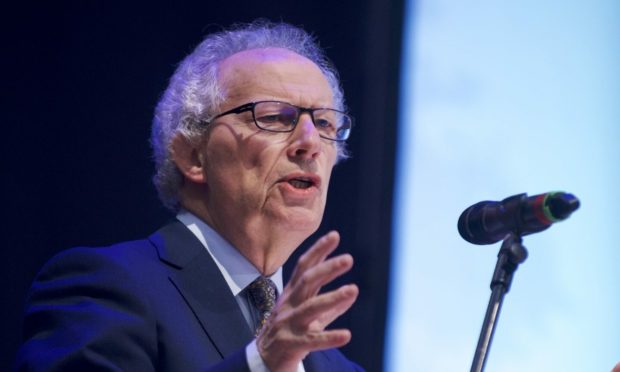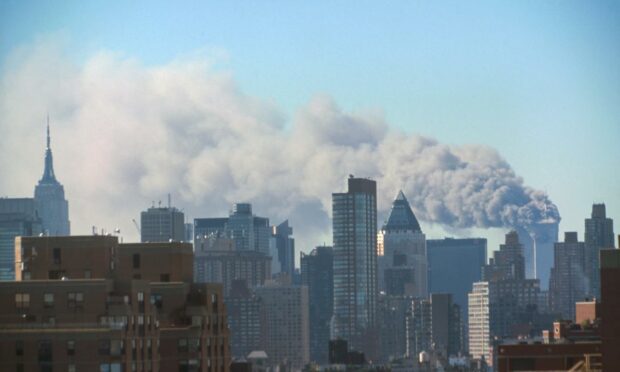Former First Minister Henry McLeish has recalled how the “unimaginable carnage” of the September 11 terror attacks on the US in 2001 left him immediately in fear that Scotland was now also “at risk”.
The Labour politician was just under a year into his short term as Scotland’s leader when he watched the Al-Qaeda attacks unfold on a St Andrew’s House television in Edinburgh, with a sense of “shock and horror” at the scale of the “barbarism”.
With the 20th anniversary of the tragedy due to be marked on Saturday, Mr McLeish spoke to the BBC about his feelings on a day that sent shockwaves around the world.
“Like the rest of the world, I think we were in solidarity. It was a time for reflection. But it was just the scale and the audacity of the attacks that I think shocked everyone,” he told the BBC’s Good Morning Scotland radio programme.
“I think it was the shock. This was carnage on an unimaginable scale, and I think that is what hit.
“But on the other hand I was also a frequent visitor to the United States, I had lots of friends in America, and obviously I was trying to process what they would be thinking of it.
“But on reflection now, I think the world was unified. This was an act of enormous barbarism, and I think the world came together.”
Mr McLeish admitted his thoughts soon turned to the implications for Scotland and the rest of the world, including the possibility that Scottish cities could be a target.
Obviously it was a thought in Westminster as well, but for Scotland I was just concerned it could have been Glasgow, it could have been Edinburgh, it could have been any part of the world.”
“Obviously it was a thought in Westminster as well, but for Scotland I was just concerned it could have been Glasgow, it could have been Edinburgh, it could have been any part of the world,” he said.
“And I think that gave us the view, to use that phrase, we were in it all together.
“I just felt on that day that not only were we at risk, but we had to now give a much, much more important degree of consideration to security issues, often maybe infringing people’s freedoms and liberties, but the world had changed and we had to change accordingly.
“So therefore my concern was for Scotland to make sure that, in tandem with London at that time, that we were trying to make things as secure as possible.”
In the interview, the former Fife Central MSP also recalled the “mood for revenge” he sensed from US officials in the aftermath, as well as his regrets that the War on Terror that followed “became a War on Islam”.

